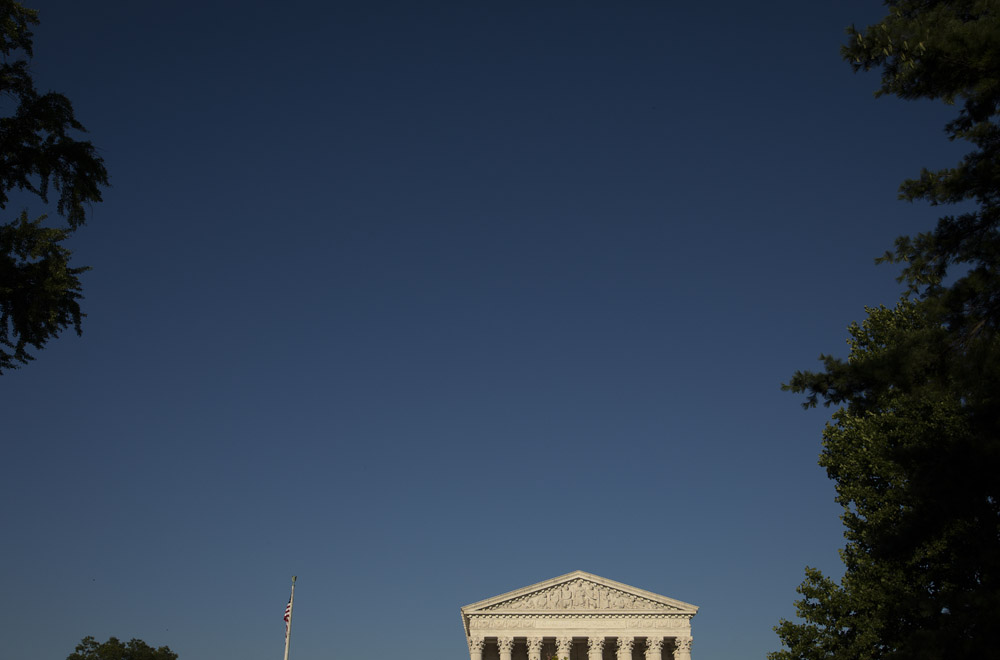
The U.S. Supreme Court is seen July 9 in Washington. President Donald Trump later that night named Brett Kavanaugh, of the U.S. Court of Appeals for the District of Columbia Circuit, to succeed Justice Anthony Kennedy, who is retiring July 31. (CNS/Tyler Orsburn)
Elections have consequences. Presidents get to choose Supreme Court justices. There is no question that ideologically the choice will tend to conform to the president’s political viewpoint. At best there may be an effort to select a consensus candidate with somewhat moderate views. This is as it should be in normal times.
No doubt there are many policy issues that are of legitimate concern with this president’s nominee. A number of them are worth fighting for and warrant a no vote on his confirmation. Yet the president would be entitled to a certain amount of deference, and typically a nominee would get through the process and gain their seat on the court, despite serious concerns about their views.
However, these are not normal times.
First of all, proper procedure was not followed in the case of President Obama’s nominee in 2016. With nearly a year left in his presidency, the Republican-controlled Senate refused to give Obama’s nominee a hearing. His nominee, Judge Merrick Garland, was in fact a moderate judge who deserved every consideration.
With an election at hand in a few short months, this same Republican Senate seems to have no difficulty in moving ahead with a nominee now that there is a Republican president.
I believe the main issue, however, is that this president is under investigation. Several matters are pending in that investigation that could find their way to the Supreme Court for resolution. No one in this country should be able to choose individuals who may find themselves deciding cases that could either exonerate or convict them.
Yet it appears President Trump has picked an individual whose positions are favorable to him. Of the four finalists for the position, the candidate he chose seems to be the one most likely to protect him.
Bottom line: This president should not select another nominee to the Supreme Court until the Russia investigation is completed. We went more than a year with only eight justices on the court. We can certainly wait until there is a resolution to the current investigation.
It is of course possible that Brett Kavanaugh, the president’s nominee, may continue to be the nominee however the investigation is resolved. He may even be the choice of some future Republican president. That is fine, but in the meantime, it should not be tolerated for this president to have a hand in determining the individual who may decide his fate. That in no way represents appropriate American jurisprudence.
Advertisement
Finally, if the process moves forward despite these concerns, the nominee must commit to recuse himself from any and all matters that come to the court regarding the Russian investigation. If he is unwilling to make that commitment he should not receive a positive vote from the Senate.
The latest indictments emerging from the Special Counsel’s office make clear that the investigation into Russian interference in the 2016 presidential election is alive and well. The probe is serious and is getting closer to determining what if any role this president and his top campaign officials may have had in election interference. The notion that the president can select his own judge who could squash a subpoena or permit him to pardon himself is unacceptable.








